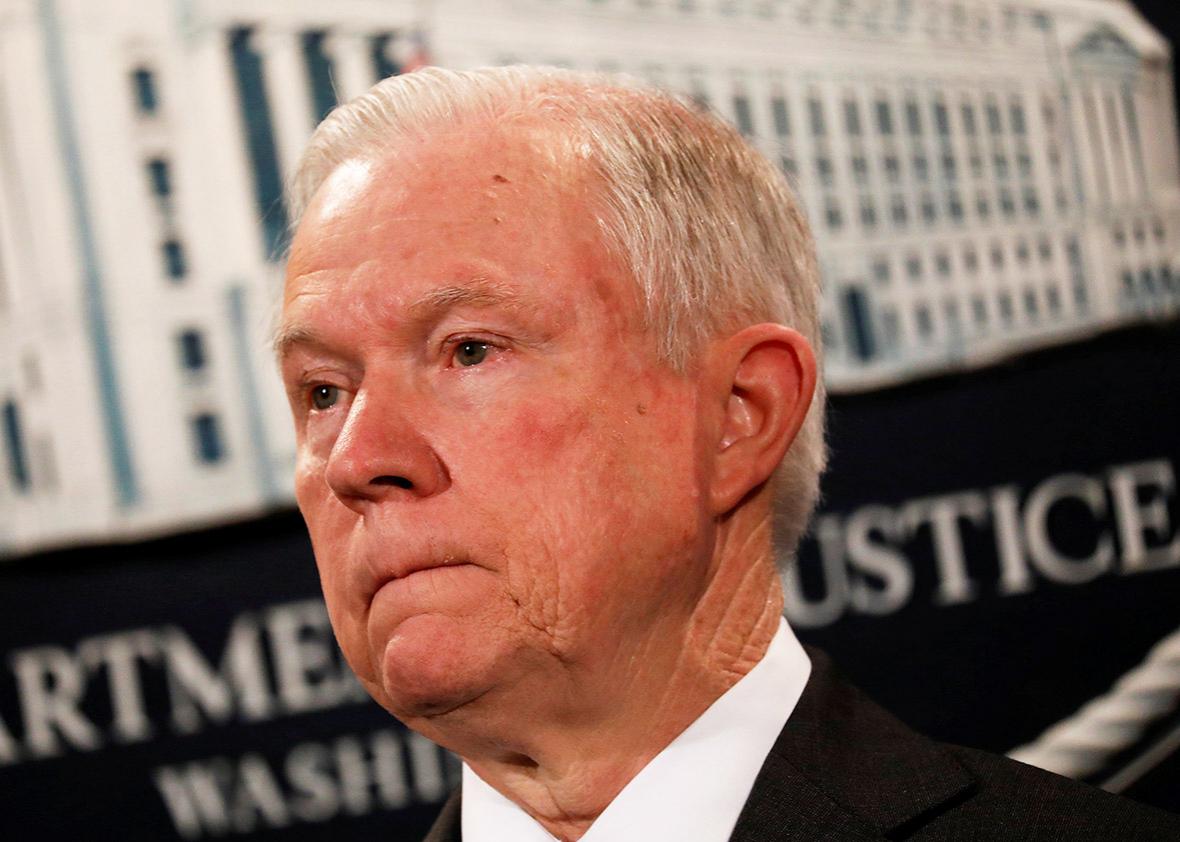In an interview with the New York Times on Wednesday, Donald Trump said Jeff Sessions’ decision to recuse himself from the Russia investigation had been a grave miscalculation that had effectively disqualified him from serving as attorney general. “Sessions should have never recused himself, and if he was going to recuse himself, he should have told me before he took the job, and I would have picked somebody else,” Trump told Peter Baker, Michael S. Schmidt, and Maggie Haberman.
It sounds ridiculous. Of course Sessions had to recuse himself: As a top adviser to the Trump campaign, he could never be objective or unbiased in supervising an FBI investigation into that same campaign’s possible collusion with the Russian government. Especially in light of the Washington Post report that Sessions had met with a Russian official during his tenure as a Trump surrogate and then told Congress that he hadn’t, the recusal was a no-brainer.
But Trump was right to be shocked when Sessions willingly stepped aside. Though it may have seemed like a no-brainer at the time, the fact that Sessions did the right thing stands, in retrospect, as the biggest surprise of the Trump era so far and one of the only instances in which this administration has lived up to a typical standard of government ethics.
Simply put, Sessions could have just not recused. What was going to happen if he didn’t? Who in the administration was going to stand up and tell the attorney general that even the appearance of a potential conflict of interest is a very, very bad thing? Who was going to say publicly that staying on would violate official Department of Justice regulations, other than the usual Democratic goo-goos in the House and Senate and the self-righteous dorks in the fake news media?
In the March 2 press conference in which he announced his recusal, Sessions explained that he’d consulted with senior DOJ officials before making his decision. “I asked for their candid and honest opinion about what I should do about investigations, certain investigations, and my staff recommended recusal,” he said. “They said that since I had involvement with the campaign, I should not be involved in any campaign investigation. I have studied the rules and considered their comments and evaluation. I believe those recommendations are right and just.”
In the before times, when presidential administrations behaved like presidential administrations, an attorney general’s willingness to listen to career staff on a matter of black-and-white institutional ethics wouldn’t have seemed extraordinary. Now it does, because with Trump as president, the notion that politics is governed by unchangeable laws of gravity has been exposed as a collective delusion. Under the new rules, Sessions could have remained in charge of the investigation even though he clearly shouldn’t have. Granted, it would have been impossible to justify such a decision in a rational, principled way. So what?
Call it nihilism if you want, but remember that Trump faced no consequential criticism from the GOP when he fired James Comey as FBI director and admitted in a television interview that he was thinking about Russia when he did it. Remember also that with the exception of this one act, Sessions’ tenure as attorney general has been marked by boundless loyalty to Trump and one broken DOJ norm after another. Against that backdrop, the recusal really does look like a very costly unforced error—one that led directly to the empowerment of stubborn institutionalists Rod Rosenstein, the deputy attorney general, and Robert Mueller, the special counsel now in charge of the Russia investigation.
Sure, there would have been calls from Democrats for Sessions to resign. If the attorney general takes seriously his duty to protect the integrity and independence of the Justice Department, he has no choice but to step aside, they would have said, probably on Twitter. Sure, career attorneys at DOJ might have raised a stink if he defied their recommendation. According to three people with knowledge of internal Justice Department discussions, attorneys consulted on the recusal question are reeling after an extraordinary rebuke by Sessions, a newspaper would have reported, probably on its front page.
Maybe it would have been slightly unpleasant for Sessions to tune out that static. More likely, it would have been easy, especially compared with the grief he’s taking now from the guy in the Oval Office who actually has the power to fire him. All Sessions had to do was nothing. Looking back, it would have been just one more act of defiance the political establishment and the public would’ve been forced to accept.
